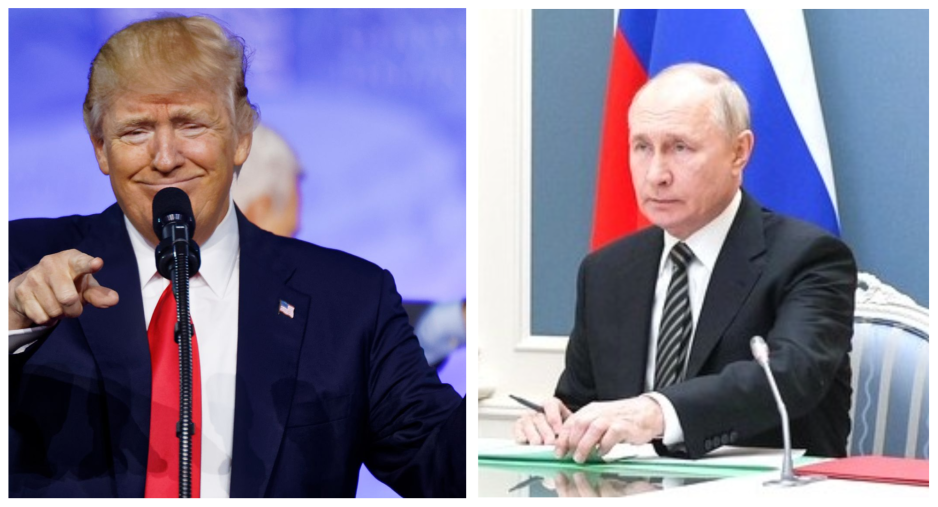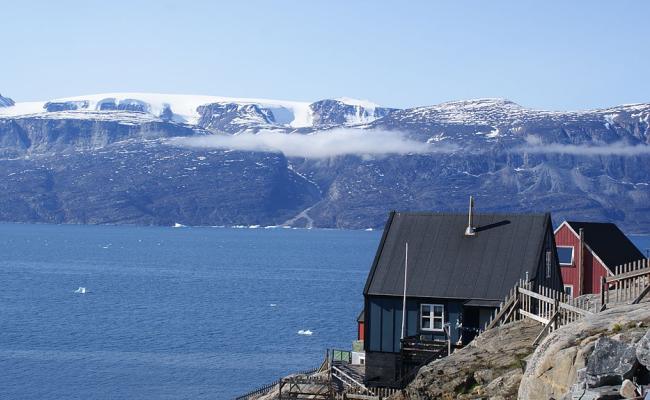Trump’s Geopolitical Alignment With the Kremlin - Prioritizing Power Over Democratic Principles and Arctic Security

Trump’s increasingly close alignment with Putin appears to be redirecting American foreign policy away from its allies and toward transactional arrangements that sidelines the architecture of multilateral engagement, defined by the rules-based international order, operative since the end of World War 2, says Fulbright Scholar in Iceland, Anita Parlow.
This is an opinion piece written by an external contributor. All views expressed are the author's own.
The United States’ pivot away from Europe on foreign policy, reducing commitments to NATO, driven by President Trump’s open admiration for Russia’s President Vladimir Putin, reflects a realignment that is replacing diplomacy for power politics.
Trump’s increasingly close alignment with Putin appears to be redirecting American foreign policy away from its allies and toward transactional arrangements that sidelines the architecture of multilateral engagement, defined by the rules-based international order, operative since the end of World War 2.
As Trump threatens to absorb Canada as “a 51st state,” annex the Panama Canal, and purchase Greenland, while simultaneously reducing support for NATO, Putin appears to have offered an endorsement of Trump’s ambition.
At a recent Arctic forum in the Russian port city of Murmansk, Putin reportedly said, “As for Greenland, this is an issue that concerns two specific states and has nothing to do with us.”
It appears a statement that expressed both support and noninterference.
Accelerate domestic mining and processing
Acquisition of critical minerals and, oil and gas production is central to Trump’s territorial ambitions and policies. Trump’s strategy combines Executive Action at home with territorial and economic coercion abroad.
As domestic policy, Trump elevated his critical minerals priorities in a directive to the Secretary of Commerce, seeking an inquiry on national security grounds.
Invoking the Defense Production Act (DPA), Trump issued orders to accelerate domestic mining and processing.
In February, a White House meeting with Ukrainian President Volodymyr Zelensky was broadcast globally, where during the encounter, Trump and Vice President JD Vance demanded expressions of gratitude for military support, while pressuring Zelensky to sell critical minerals to the U.S.
The exchange reflected a strategy that utilizes coercion over cooperation, “deals” over treaties, and sovereignty subordinated to invasion.
Also read (the text continues)
Should Trump expand upon his efforts to absorb Greenland, a territory of NATO founding-member Denmark, it could provoke a crisis, potentially fracturing the alliance.
For Putin, such a rupture would amount to a long-desired geopolitical victory, weakening the NATO alliance without firing a shot.
Greenland’s Prime Minister Múte Bourup Egede and Prime Minister Mette Frederiksen of Denmark have presented a united front, emphasizing that Greenland, the strategically located, mineral-rich, semi-autonomous island, is “not for sale.”
While seeking to reinforce ties with their longstanding ally, the United States, the embattled leaders are simultaneously resisting President Trump’s vow to assert control over the self-governing territory.
Around the same time, Trump praised Putin’s conduct in Ukraine, claiming Russia made a “pretty big concession” by “not taking the whole country.”
It depends what territory
When asked whether Ukraine would need to cede more territory for peace, Trump responded in-kind to Putin’s remarks regarding Greenland:
“It depends what territory”.
On April 2, 2025, the White House hosted Kirill Dmitriev, head of Russia’s sovereign wealth fund, a Stanford-educated, former Goldman-Sachs investment banker, for a meeting with Trump’s envoy, Steve Witkoff, a wealthy real estate salesman.
The meeting, a follow-up to their U.S.-Russia summit in Riyadh, expressed as efforts to achieve a cease-fire, yet, conducted without Ukrainian or European representatives.
Following the meeting, Dmitriev expressed what appears to be the Kremlin’s priority: Russian-US joint ventures in energy production in the Arctic.
Also read (the text continues):
Putin’s offer in energy production exemplifies his hybrid strategy: offering partnership underpinned by Russia’s dominance and superior capabilities in the High North.
The appearance of collaboration masks Russia’s control in both capabilities and strategy.
Trump can claim resource deals and territorial gains, while Putin secures operational leverage across the Arctic’s increasingly contested strategic corridors.
In such a joint venture, the U.S. would be the junior-partner. Russia maintains clear superiority over the U.S. in the Arctic in air, maritime, and infrastructure capabilities.
This advantage stems from decades of investment and geographic proximity.
US lacks comparable forward presence and icebreaking capacity
With a network of forward-operating bases, nuclear icebreakers, air defenses, and deepwater ports, Russia has strategic dominance across the Northern Sea Route and superior military and commercial capabilities in the Bering Sea.
The U.S., by contrast, lacks comparable forward presence, icebreaking capacity, and significant Arctic-adapted military infrastructure.
As Russia tightens its grip on Arctic energy and China continues to dominate global critical mineral’s production, particularly the refining capabilities that stimulates Trump’s interest, the emerging world order is being reshaped not by democratic norms but by resource control with three globally dominant partners shaping the geopolitical space, where, as in the past century, “might makes right.”
It is uncertain whether the US will reaffirm its, though imperfect, commitment to international law and norms following the next presidential election. Ultimately, Europe holds the balance.
Putin’s aggressive ambitions and Trump’s bypassing international law and norms, highlights the need for Europe to take the lead.
A united Europe, with differences set aside and strengthened political cohesion, is vital for defending against Russia’s increasing hybrid wars and war in Ukraine.
Strengthening national and regional security strategies, along with stronger diplomatic and trade cooperation, will help maintain stability and uphold democratic principles across the Atlantic and beyond.


